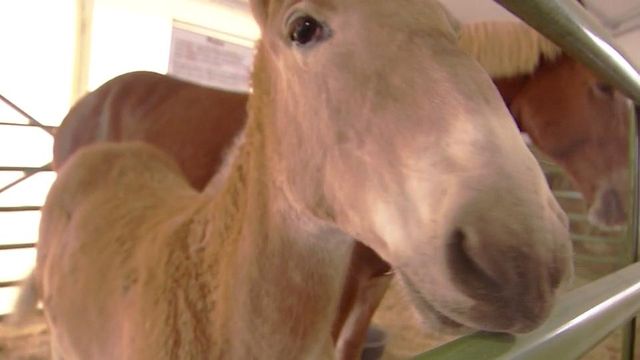Fair changes put humans, animals farther apart
Visitors to the 2012 North Carolina State Fair will see even more signs reminding them to wash their hands, the result of an investment of more than $200,000 after 25 people contracted E. coli infections last year that could be linked to a livestock building.
Posted — UpdatedAgriculture Commissioner Steve Troxler and state epidemiologist Dr. Megan Davies reviewed the changes Thursday morning and reiterated the reminder that soap, water and frequent hand washing are the only ways to prevent the spread of infection when people, animals and food come together.
Hand-washing stations throughout the fairgrounds will get better lighting and larger signs this year in an attempt to encourage even more fair visitors to use the sanitizer, soap and water provided.
Troxler formed a task force to develop recommendations last fall. "From the beginning of this investigation, we have been focused on finding answers about why these illnesses occurred," he said.
Animal exhibits and food vendors will be relocated to put more space between them, and visitors will find new routes through animal buildings that limit the contact that people can have.
"You will walk past the animals. You will see the animals, but you cannot walk into the pens. You cannot walk into the Graham building with the dairy cattle, with the beef cattle. You will have to stand and look from some distance," said David Smith, chief deputy commissioner in the Department of Agriculture. "There will be physical barriers to prevent your interaction."
Only in the petting zoo area will fair visitors be allowed and encouraged to touch the animals. Hand-washing and sanitizing stations outside the petting zoo were added after a 2004 outbreak sickened more than 100.
Davies pointed out that signs at the fairgrounds advise parents not to take strollers through animal buildings, where they can pick up bacteria that children later transfer from hands to mouths.
"Don't roll a stroller through a barn. That's something that's always been suggested," she said.
No matter the precautions, both Troxler and Davies emphasized the inherent risks.
"Animals are not the only point of contact that you can get E. coli," Troxler said.
"While there is no way to completely eliminate the potential for exposure, the measures being implemented will minimize the risk," Davies said.
• Credits
Copyright 2024 by Capitol Broadcasting Company. All rights reserved. This material may not be published, broadcast, rewritten or redistributed.






